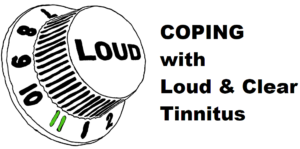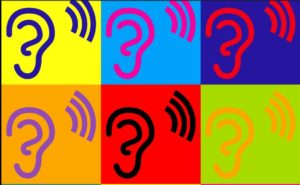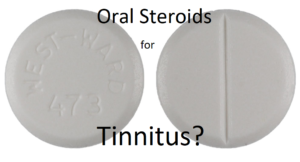Do you think you have a case of jaw clenching Tinnitus? Does your Tinnitus get worse when clenching your jaw? We tell you everything you need to know the connection between Tinnitus and jaw clenching and what you can do about it.
Is your Tinnitus because of a clenched jaw?
To establish this connection, please answer the following questions;
What is Your Tinnitus Handicap Score?
Calculate your THI Score in about 2-3 Minutes
Does your Tinnitus sound change (pitch, volume and type of sound) when you;
-
- yawn, chew or speak a lot?
- clench your jaw or move your jaw forwards and backwards?
- move your neck?
If you answered yes to even one of those questions, it could very well be that your Tinnitus is being caused by a clenched jaw. Another very telling sign that your clenched jaw is causing your tinnitus is if you struggle with the following additional symptoms; headaches, dizziness and jaw or neck pain.
Why does a clenched jaw cause Tinnitus?
To understand this, we need to get into a little bit of anatomy. Your jaw is attached to your skull by a joint called temporomandibular joint (TMJ). The mandible in TMJ stands for your jaw while temporal stands for your skull.
How Severe is Your Tinnitus?
Find out by using this THI (Tinnitus Handicap Inventory) Scoring Calculator
The TMJ joint is intricately constructed. It contains a ligament called malleus that runs from the TMJ joint to the bone that also houses the middle ear. This is why your ears sort of feel the vibrations or reverberations when you eat something crunchy like peanuts or almonds.
Besides the malleus connecting the jaw and the ears, there are also nerves that run from the jaw straight into your eardrum. Also, there are nerves that run from the TMJ right into your brain, specifically to the areas that are responsible for your hearing.
So, when you continually clench your jaw or grind your teeth, a condition called Bruxism, which we will discuss next, there is a lot of pressure being applied on the malleus ligament and also on the nerves that connect your jaw to the ear.
Over time, the continuous pressure alters the intricate arrangement of your ear, specifically your middle ear. This causes a malfunction in your ears and your brain begins to think that you are not hearing sounds that you are supposed to be hearing. So, what does your brain do? It begins to generate a phantom sound! This unfortunately results in a perennial ringing of the ears, aka Tinnitus.
Tinnitus resulting from a clenched jaw is classified as Somatosensory Tinnitus. Somatic means a condition of the mind. But, this doesn’t mean that you can just ‘think’ away Tinnitus. To get rid of Tinnitus caused by a clenched jaw, you need to relax your jaws. This is discussed next.
How to treat clenched jaw Tinnitus (Bruxism)?
We’ve got some good news here first. A fairly comprehensive 2017 study found that 69% of people suffering from clenched jaw Tinnitus were able to find various levels of relief after undergoing treatment for their clenched jaw.
That being said, let’s look at treatment options;
Dental Splints to treat Bruxism
This is by far the most popular treatment to treat Bruxism which in turn treats an accompanying condition of Tinnitus.
This will require a visit to your dental office. Your dentist will examine your teeth to see if you have clenching or grinding your teeth. 80% of people with Bruxism don’t know they grind or clench their teeth, mostly because they do it while they sleep. But, a dentist will be able to tell very quickly just by examining your teeth.
Once it is established that you have Bruxism, your dentist will relax your jaw. This will be done with either medications like muscle relaxants or with the use of a TENS machine. A TENS machine passes small electrical currents to relax your jaw, over an extended period like an hour.
Once your jaw is sufficiently relaxed, your dentist will take an imprint of your jaw by applying a mold with putty onto your teeth. This mold will be used to create a splint or guard that you will have to wear. Depending on how severe your teeth grinding or clenching is, you might have to wear the guard all the time or only at night.
Over time, typically a few months, your jaw will learn to relax. This in turn releases the pressure on the Malleus ligament and also the nerves that connect your jaw and ears. The decrease in pressure allows your ears to work as normal. Your brain then shuts off the phantom noise that is called Tinnitus.
Chiropractor for Treating Bruxism
Many people have successfully treated Bruxism with visits to a Chiropractor. Like how your jaw could be causing your Tinnitus, spasms or dislocations in your spine could be causing your jaw problems. A chiropractor will address these problems over several sessions.
So, a Chiropractor will ideally take stress of your jaw that will in turn take stress off your ears. You can learn more about whether a Chiropractor can help with Tinnitus here.
Relaxation to Treat Bruxism
One of the most common reasons why people clench or grind their teeth is because of high levels of stress. If you do not wish to go to a dentist or chiropractor, you could just try to relax. Yoga, breathing exercises, being mindful about your stress levels or picking up a de-stressing hobby or exercise routine are all great ways to eliminate or at least reduce stress in your life.
This can in turn help you relax your jaw that can of course help with your Tinnitus.



